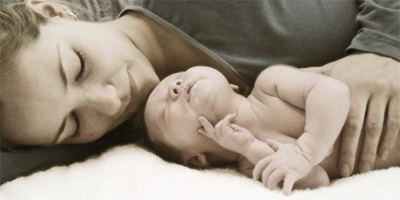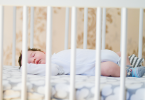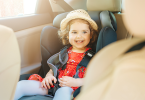Babies are unable to control their own sleep environments. They can’t move out of a harmful situation, nor do they understand danger. They rely on others to protect them.
That’s why Safe Kids Greater Augusta recommends that parents and caregivers follow the ABCS of infant sleep safety to prevent injuries and accidental death.
A – Alone: Be sure there is nothing or no one in the crib besides baby. Also, it is best to use a sleep sack instead of a blanket. Bumper pads are attractive, but they can be dangerous. If you want to decorate baby’s bed with them, that’s OK for a short while, but remove them as soon as your baby starts to roll over to avoid a suffocation hazard.
B – Back: Always put baby to bed on his/her back; never on the belly or side positioners. The current American Academy of Pediatrics recommendation is back to sleep, even for premature babies. Compromising on any of these standards can be detrimental to your child.
C – Crib: Only use a safety-approved crib or bassinet for baby to sleep in, and never put your baby to sleep on an adult bed, couch, or other soft surface. Babies may suffocate in a soft, plush environment like that, so it’s best to stick with the recommended and approved sleep spaces.
S – Smoke-free: We all know the dangers of secondhand smoke, and the U.K. has just banned smoking in cars with children under the age of 18. But, also, third-hand smoke – the smoke that lingers in clothing, upholstery, and other fabrics, puts babies at risk for SIDS (Sudden Infant Death Syndrome) and SUID (Sudden Unexplained Infant Death) almost as much as placing them on their bellies does.
Healthy sleep measures are essential for a baby’s proper growth and development, and indeed their survival. In fact, we can significantly reduce the number of infant deaths due to SIDS/SUIDS by following these important sleep practices.
If you have questions about these infant sleep safety guidelines, you should discuss them with your pediatrician. You can also sign up for a Cribs for Kids class, which is offered twice monthly by Safe Kids Greater Augusta.




